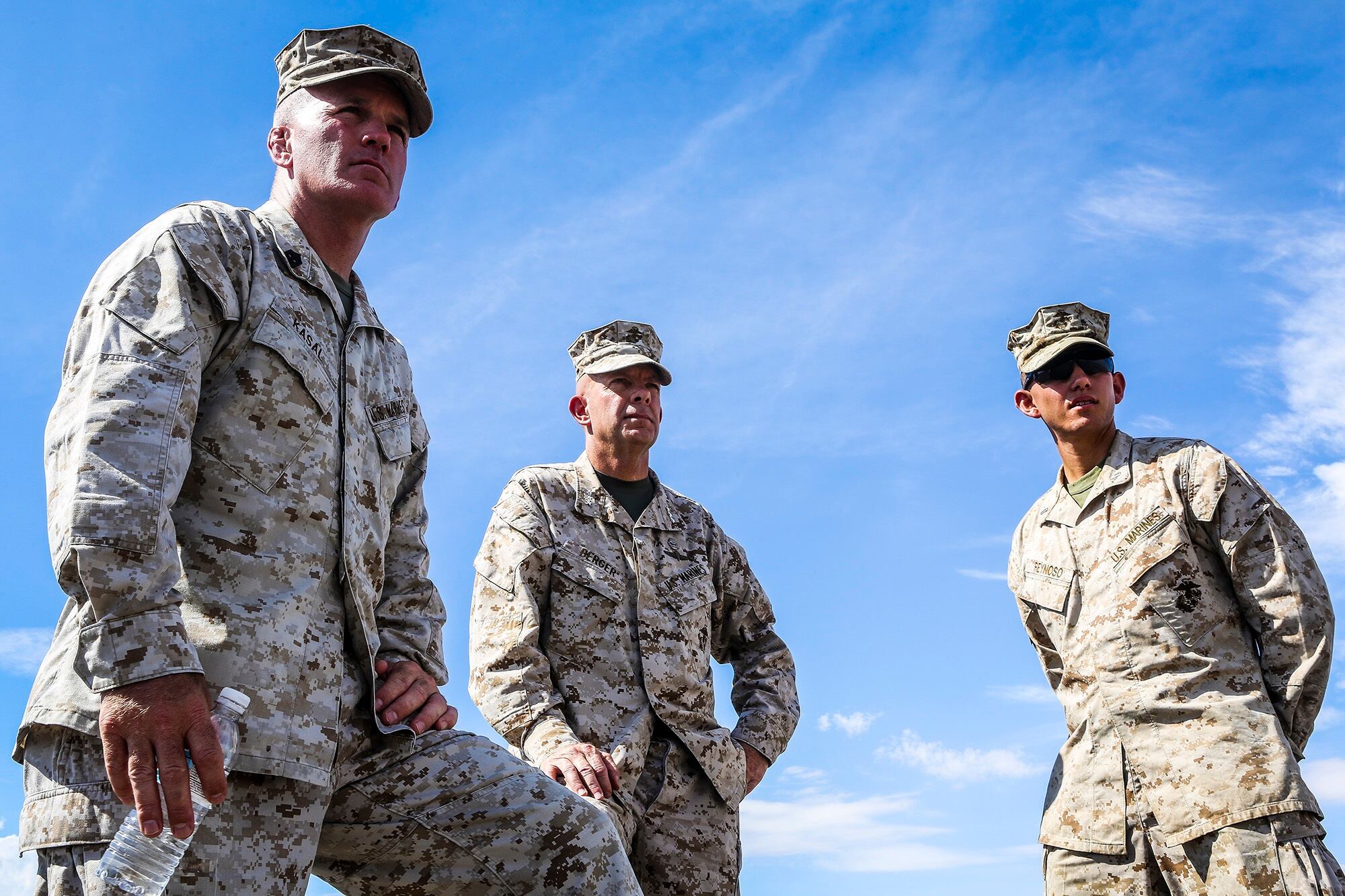As his tenure leading I Marine Expeditionary Force nears its end, Lt. Gen. David Berger said he is particularly proud about how quickly his Marines got into the fight months after being tasked with establishing a crisis response force for the Middle East.
Even though there was no equipment or facilities for the new unit to use, it was able to launch AV-8B Harrier strikes against the Islamic State group in Iraq within days of arriving downrange in the fall of 2014, Berger said.
"That's what the Marine Corps does: We don't hesitate; we'll get to a 75 percent solution really quickly, get the force to the point where they're needed and we're very confident that the good leaders that we send will figure the rest out," Berger said.
On Wednesday, Berger is handing over command of I MEF to Maj. Gen. Lewis A. Craparotta, who has spent the past two years leading as commanding general of Marine Air-Ground Task Force Training Command and Marine Corps Air Ground Combat Center Twentynine Palms, California.

Sgt. Maj. Bradley Kasal, left, the top enlisted leader with I Marine Expeditionary Force, left, and Lt. Gen. David Berger, center, commanding general of I MEF, speak with 1st. Lt. Bernardo Reynoso at Marine Corps Air Ground Combat Center Twentynine Palms, Calif.
Photo Credit: Sgt. Ricardo Hurtado/Marine Corps
In an interview with Marine Corps Times, Berger cited the creation of the Special Purpose Marine Air Ground Task Force—Crisis Response—Central Command as one of I MEF's major accomplishments since he took command in July 2014.
"The key is being flexible: Being able to adapt to different operating environments — and doing it in a way that is expeditionary," he said.
Berger singled out the unit’s first commander, then-Col. Jason Q. Bohm, who is now a brigadier general.
"You give a colonel some guidance and the backing of a powerful force like I MEF and you can put a pretty strong team on the field," Berger said.
After only a couple months of training, Bohm and his team deployed downrange, bringing all of their equipment with them, Berger said.
"Col. Bohm and his first team went over there with everything from generators to radios to tents to set up shop and be able to operate within — I think it was two or three or four days from they got there — their they’re Harriers were already operating in Iraq."
Berger's next assignment will be commander of Marine Corps Forces Pacific and Fleet Marine Force Pacific in Hawaii. He is replacing Lt. Gen. John Toolan, who is retiring in September.
Since I MEF provides many of the Marine units that rotate through the Pacific, Berger said he is familiar with the challenges in the Indo-Asia-Pacific region.
"Natural disasters that happen in the Pacific affect more people and happen more frequently else in the world," he said. "You've got to be ready to respond to that on no notice."
Marines in the Pacific also have to train to fight countries that pose a threat to regional security, Berger said.
"A lot of countries around the Indo-Pacific region look to the U.S. as sort of the stabilizer," he said. "They look to us to take the lead."
Many nations in the Pacific specifically want to work with the Marine Corps, and that's not because "our uniforms look cool," Berger said.
"There's an amphibious foundation underneath the Marine Corps that they see as something that their nation needs going forward" he said. "They want to partner with the U.S. Marine Corps so that they can develop a similar capability on their own. That's really opened a lot of doors and it's really great to see."





